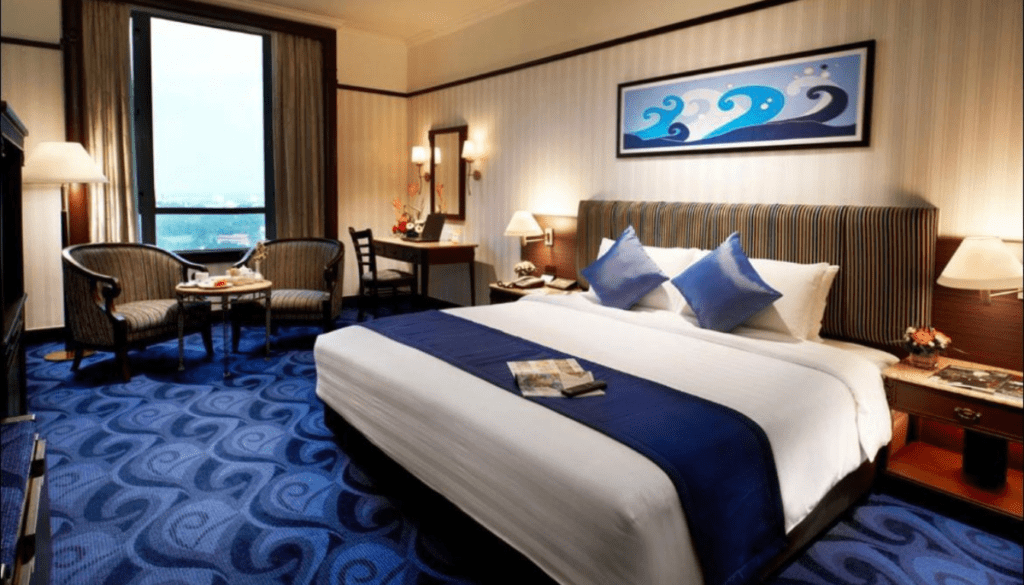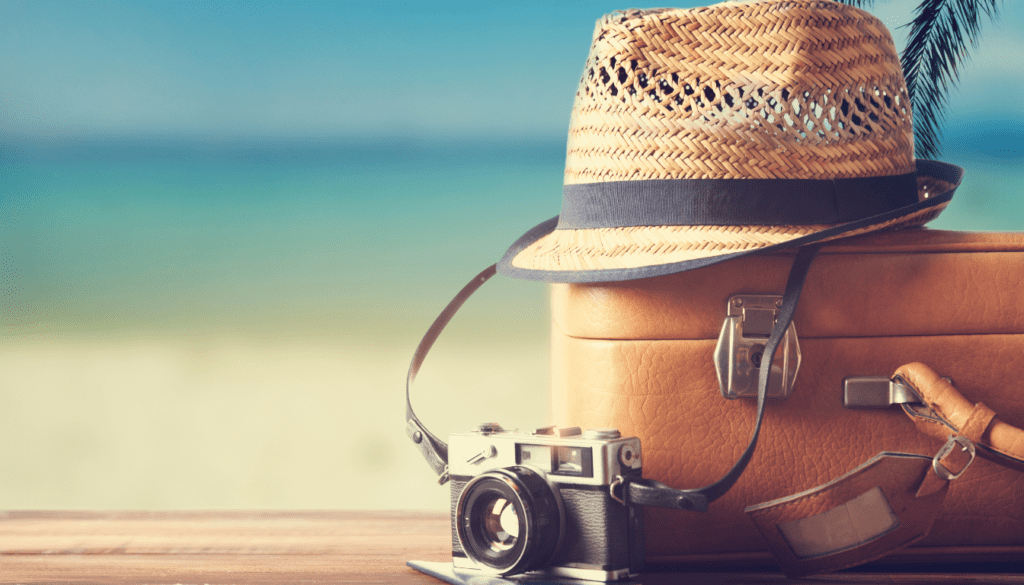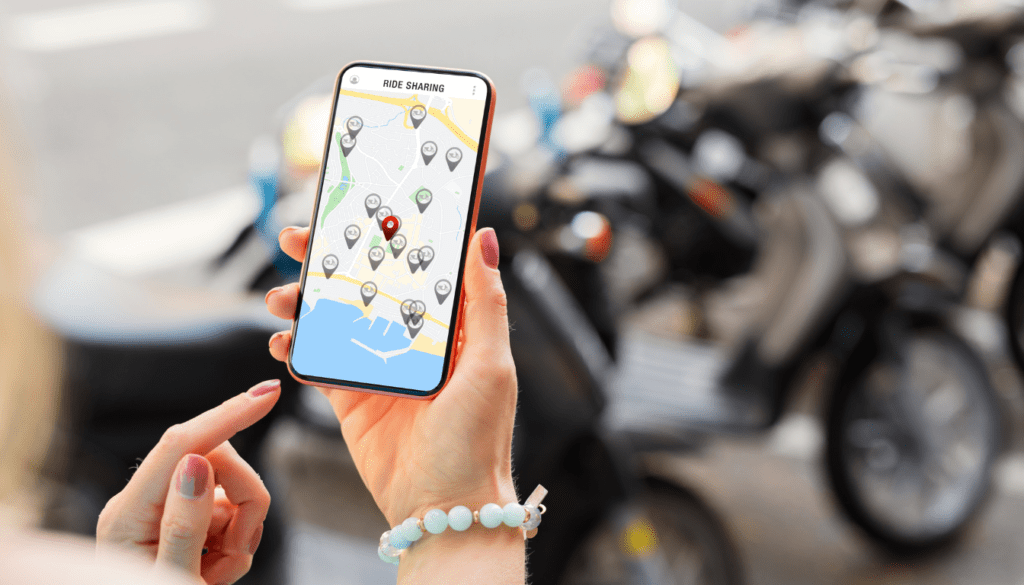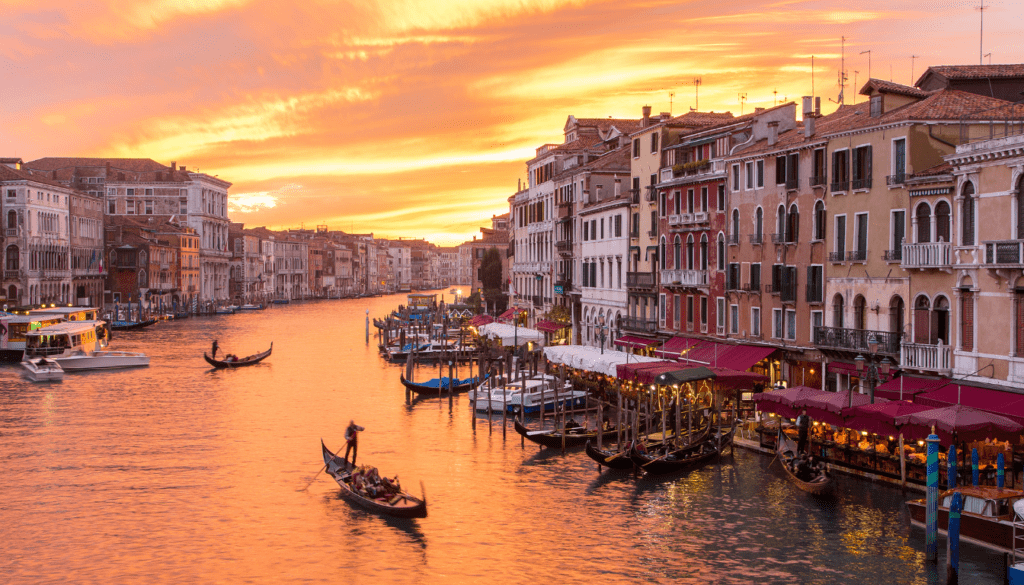Wonder why some trips leave you more tired than relaxed? It’s all about planning your travel budget well and getting ready with care. Know what you want from your trip, whether it’s to relax or dive into a new culture. This will make your journey more enjoyable. Always plan together with your travel buddies to keep everyone happy. It adds to the fun you’ll have.
Don’t forget to plan some rest time. It keeps you from getting too tired and not enjoying your trip. Now, let’s look at some smart ways to save money while you adventure.
Key Takeaways
- Effective budget travel planning eliminates post-vacation stress.
- Setting intentional goals for your vacation ensures satisfaction without regrets.
- Synchronizing plans with travel companions maintains harmony and caters to everyone’s experiences.
- Scheduling downtime and rest days helps avoid exhaustion during your trip.
- Opting for cost-effective vacations allows you to enjoy more without breaking the bank.
Understanding Your Travel Priorities
In your quest for a rewarding journey, setting clear goals is crucial. This helps you handle your travel money wisely. Also, it lets you enjoy cheap travel spots more and use smart travel tips. These steps will make your trips not just fun but also budget-friendly. Here’s how you can outline and share what you want from your travels.

Setting Your Intentions Early
First, think about what you want from your trip. Do you crave relaxation, a bit of adventure, or a dive into different cultures? Deciding early helps in choosing where to go and what to do. This foresight is key in managing your travel costs and ensuring your trip is just what you wanted it to be.
Communicating with Travel Companions
Traveling with others makes talk essential. Discuss what each one likes to avoid clashes and meet everyone’s wishes. Talk about where to sleep, eat, and the plans to do together. Even with budget saving ideas, it can be a blast for everyone. Be ready to split for some activities to let everyone do what they love, keeping the trip cheerful for all.
Creating a Realistic Travel Budget
Making a travel budget is key to a carefree and fun trip. By knowing your money limit and dividing it smartly, you can have a great trip that’s not expensive. You won’t have to cut corners on fun or quality.
Assessing Your Financial Comfort Zone
First, figure out how much you can spend without worry. Understand what’s within your means. Note that gas prices are lower now, but airfares are up by 0.1% from February 2023.

Watching your spending as you go along helps stay on track. Tools like Wallet can be great for this. They make sure you stick to your budget.
Allocating Funds to Different Categories
Once you know what you can spend, divide your money for different travel needs. Transportation can be a large part, often 30% to 50%. Accommodation can be up to 40%. American travelers usually spend $225 a day on local trips, with accommodation being almost half.
| Expense Category | Percentage of Total Budget |
|---|---|
| Transportation | 30% – 50% |
| Accommodation | 20% – 40% |
| Food | 20% – 30% |
| Activities and Attractions | 10% – 20% |
| Souvenirs | 5% – 10% |
| Emergency Fund | 5% – 10% |
For food, plan to spend 2 to 2.5 times your daily accommodation cost. This covers 20% to 30% of your budget. Activities might need another 10% to 20%. Keep 5% to 10% for unexpected costs. This helps ensure your trip is stress-free and well managed.
Booking Accommodations in Advance
One of the best frugal travel hacks is to book your stay early. This approach helps you save money and ensures you get the place you want. It can lead to a smooth trip. Look for deals during slow seasons to save on flights and rooms. Planning ahead lets you pick from many budget-friendly spots.

The Benefits of Early Reservations
Booking ahead has many plus sides. You can grab lower prices and have more choices available. Traveling on less busy days and times also cuts your costs. This is because places to stay may lower their prices then.
Security Measures to Consider
When you book, think about safety. Choose places that put safety first with keyed entries, safety boxes, and good lighting. Always look into how safe a place is. Even friendly places like hostels should have solid security in place.
Reading Reviews and Comparing Options
Thorough research is key. Read what others have said and compare your choices. Sites like TripAdvisor and Booking.com can give you useful insights. Choosing spots a bit farther from big attractions may save you money. You can enjoy comfort and keep spending low.
| Accommodation Type | Benefits | Savings Potential |
|---|---|---|
| Hostels | Offers social atmosphere | High affordability for solo travelers |
| Vacation Homes | Cost-effective for groups | Significant per-night rate reduction |
| Guesthouses | Personalized experience | Insider tips from local hosts |
| Hotels (Mid-week/Shoulder Season) | Lower prices | An average of 15-20% savings |
Booking early helps with logistics and your wallet. Use smart tips to turn your travel dreams into affordable reality. With these hacks, staying in budget-friendly places is within reach.
Making Restaurant Reservations Ahead of Time
Making restaurant reservations early is a top money-saving tip for traveling. It’s frustrating to wander and hope for a good eatery. It’s even worse when 70% of our vacation time is spent finding somewhere to eat. Booking ahead ensures a smooth trip, letting you enjoy your time without worry.
Saving Time and Reducing Stress
Booking your meals ahead saves a lot of time. It fits perfectly with traveling on a budget, stopping you from making quick, expensive choices. Also, planning your rides and tours early saves time. This all makes your trip more calm and enjoyable.
Enjoying Popular and Well-Rated Restaurants
Booking early helps you get into the best, most popular restaurants before they’re full. This makes sure you enjoy the best dining without long waits. Planning how much you’ll spend on food before the trip avoids money worries later.

Visiting fewer cities and being mindful can keep you from feeling rushed. Being in the moment and taking breaks from work makes your trip better. Starting and finishing your trip with extra, relaxing days helps a lot.
“Planning ahead not only saves time and money but also enriches the travel experience by ensuring you don’t miss out on the local flavors and must-try eateries.”
Using these tips can change a stressful food search into a joyful dining adventure. It works for both budget travel and wanting to eat at top places. Making reservations ahead is wise and rewarding.
Researching Your Destination Extensively
Before you start a new journey, it’s vital to do your homework. This ensures your trip is both smooth and memorable. We’ll look at some key steps for managing your budget and staying safe.
Understanding Local Customs and Etiquette
Diving into local culture adds joy to your travels. Learn about customs and etiquette through travel blogs and forums. This knowledge will guide you through interactions and help you show respect.
Learning About Local Laws and Safety
Keeping yourself safe is the top priority. Always study the local laws and listen to safety advice. The U.S. State Department’s website has detailed tips. Social media can also provide insights from other travelers.

Exploring Transportation Options
Planning transportation well is key for budget travel. Look at different options like trains, buses, and flights. Use Google Flights and Hotels to find the best prices for your travel days.
Identifying Key Attractions and Dining Spots
Knowing what you really want to see and eat makes planning easier. Use guidebooks and online resources to find the best places. Social media, such as Facebook and Twitter, are great for discovering hidden treasures and reviews.
An effective checklist is great for keeping all your planning on point. It helps you remember everything important, from customs to travel plans. Good research makes your journey safer and more fun, mixing culture with practicality.
| Research Tools | Purpose |
|---|---|
| Travel Blogs | Gather insider tips and destination recommendations |
| Social Media Platforms (Facebook, Pinterest, Twitter) | Engage with travel-related content and inspiration |
| Google Flights & Google Hotels | Explore destinations, compare transportation and accommodation prices |
| Guidebooks | Access comprehensive information on destination highlights |
The Importance of Rest Days in Your Itinerary
Travel is thrilling but tiring, especially when you have activity after activity. To have a journey that’s both refreshing and free from stress, include rest days in your budget travel planning.
Scheduling Downtime for Relaxation
After visiting more than 100 countries, I know that scheduling downtime is key. It’s been found that 72% of travelers are less stressed when their plans are in order. By taking days to relax, you refresh and take in your surroundings, whether by the pool or exploring a lounge in Hong Kong. These breaks can stop you from feeling overwhelmed.

Avoiding Overpacked Days
On a 20-hour flight to Portland, I learned to pace myself. An overloaded schedule can lead to burnout. Surprisingly, 68% of travelers say a flexible plan with lots of rest reduces their stress. It’s a smart move for budget travel planning too, preventing you from spending big out of tiredness.
In short, adding rest days to your plan means a stress-free and enjoyable trip. A happy traveler is one who takes time to rest!
Managing Your Travel Expectations
When you plan for a worry-free travel time, it’s vital to balance fun plans with chill time. This keeps you from getting too tired or stressed. Also, staying open to plan changes makes your trip even better.

Finding a Balance Between Activities and Relaxation
Finding the right mix of fun and calm times is key. Tightly packed days can make you feel overloaded. Adding free days to relax not only avoids exhaustion but makes your trip more fun.
Over 90% of travelers get jet lag, so breaks are essential to beat tiredness. This lets you fully enjoy your time off.
Being Open to Changes in Plans
Stress-free travel means being ready for surprises. Things might not go as you planned, but these moments can become highlights.
For instance, if a dinner reservation gets canceled, see it as a chance to find a hidden gem. Many worry about their phone battery, but staying flexible lowers stress. Dealing with changes well keeps your travel happy and satisfying.
Remember, managing your travel expectations means finding the right mix of activities and relaxation and being ready for changes. Following these tips guarantees a smoother, more fun, and cost-effective journey.
Utilizing Technology for Stress-Free Travel
Technology can make your travels a breeze, offering tips that save time and money. By using smart travel apps and tools, you can plan, budget, and enjoy your trip with ease.
Using Apps for Budgeting and Planning
Apps like Tripnotes AI make planning easy, with tools for setting and following a budget. This way, you can track your expenses and keep within your means on the go. Best of all, it’s free, saving you money while keeping you organized.

Booking Transportation and Tours Online
Forget the stress of last-minute travel worries. With travel apps, you can book your rides and adventures beforehand. You’ll get updates on flights and the weather. So, exploring new places becomes a lot smoother.
The Tripnotes AI Chrome extension is a must-have. It lets you keep all your travel details in one safe spot. This includes flights, hotels, and things you want to do, all with secure access.
Creating a Comprehensive Itinerary
Making a comprehensive itinerary is key to planning a stress-free vacation. Such a plan mixes detailed schedules with chances for surprises. This mix makes your journey smoother and more fun.
Detailing Daily Activities and Attractions
Your itinerary should map out each day clearly. This ensures you see all the important spots and do the top activities. Use tools like Wander and Wherefor for budget travel planning. They help find affordable fun.
Solo travel lets you set your own pace. It makes it simpler to meet new people and control your costs.

Allowing Flexibility for Spontaneity
Having a good plan is important, but so is space for the unexpected. Leave some free time in your schedule for surprises. This approach helps keep your journey stress-free while allowing for exciting unplanned adventures.
The key is balance. A well-organized trip can lead to magical moments. Serendipity mixed with good planning often creates the best memories.
Planning for Contingencies
Planning ahead for what might go wrong saves money and stress when you travel. It’s smart to be ready for unexpected costs. Adding a buffer to your budget is key to smooth sailing.
Setting Aside an Emergency Fund
It’s smart to save part of your travel money for emergencies. This safety net covers things like sudden health issues or losing something valuable. With a backup plan, your trip won’t get derailed by unexpected events.
Being Prepared for Unexpected Expenses
Travel comes with surprises, and some are not fun. Extra costs can pop up, but a solid plan can help. Be sure to budget for visas, insurance, and local travel like taxis.
Keeping track of what you spend daily is a great way to stay on budget.

Here are some common areas where unexpected expenses can arise, and tips to plan for them:
| Expense | Description | Planning Tip |
|---|---|---|
| Transportation | Flights, trains, rental cars, local transit | Track airfare prices, book early, use public transportation or walk when possible |
| Accommodation | Hotels, rentals, hostels | Book in advance, compare reviews, consider alternatives like Airbnb |
| Meals | Dining out, cafes, groceries | Budget for groceries, dine at local eateries, use travel rewards points |
| Activities | Entry fees for attractions, tours, sports | Research free or low-cost attractions, book tours online |
| Local Communication | SIM cards, data plans | Research costs beforehand, use Wi-Fi hotspots |
| Miscellaneous | Souvenirs, emergencies | Set a daily spending limit, save on currency exchange fees |
By following these strategies and planning for emergencies, your trip will be worry-free. You can relax knowing you’re prepared for anything.
Choosing Affordable Travel Destinations
Picking the right spot for your vacation is key for saving money. A good choice will let you enjoy your trip fully but not go over budget.

Researching Cost-Effective Locations
Start by looking into places that are known for being affordable. Sites like Be Your Own Travel Guide are great for finding budget-friendly spots. Think about the cost of living, exchange rates, and how easy it is to be a tourist there.
Finding Destinations with Free or Low-Cost Activities
Picking spots with good public transport can also save you money. Use buses, trains, and trams instead of taxis or renting a car. Staying at guesthouses or hostels found on Booking.com will also help keep your budget happy.
Here’s a quick look at some low-cost destinations:
| Destination | Average Daily Cost | Key Free or Low-Cost Activities | Public Transport |
|---|---|---|---|
| Budapest, Hungary | $50 | Thermal baths, free walking tours, historic architecture | Extensive metro and tram networks |
| Chiang Mai, Thailand | $30 | Temples, night markets, nature trails | Inexpensive songthaews and bus services |
| Lisbon, Portugal | $60 | City viewpoints, cultural festivals, free museum days | Efficient tram and metro system |
Choosing the right destination and planning carefully will make your trip unforgettable. It’s all about making the best of what you have.
Using Frugal Travel Hacks
Maximizing your travel experience while minimizing costs is entirely possible with some clever frugal travel hacks. One essential tip is to maintain a daily budget of around $50. This translates to a monthly expenditure of approximately $1,500. For anyone planning an extended adventure, like a 6-month backpacking trip around the world, it’s recommended to save at least $9,000. This financial cushion allows you to enjoy your travels without constantly worrying about funds.
Cutting costs on accommodation is one of the most effective ways to stretch your travel budget. Consider alternatives like hostels, couchsurfing, or house-sitting to reduce lodging expenses. Additionally, reducing unnecessary spending is crucial. I recommend tracking your expenses diligently and ruthlessly budgeting by distinguishing between “NEEDS” and “WANTS.” Opportunities to make extra money on the side, such as freelance work or part-time gigs, can also bolster your travel funds.
In daily life, adopting money-saving habits can significantly boost your savings. Cooking at home rather than dining out frequently, shopping around for the best deals, and reducing utility costs are practical steps. By incorporating these strategies into your routine, you can accumulate savings faster and allocate more funds to your travel adventures. Utilizing specific frugal travel hacks can make your journey both memorable and budget-friendly. For more detailed strategies, you can explore articles such as those on ways to save money for travel.
FAQ
How can I start budget travel planning effectively?
Start with clear goals for your trip. Decide if you want relaxation, culture, or adventure. This will shape how you plan and budget.
How should I communicate with my travel companions to manage expectations?
Talk openly about your vacation goals. Understand each other’s desires and find middle ground. You can also choose separate activities to suit everyone.
What is the best way to create a realistic travel budget?
First, know your financial limits. Divide your funds for travel, stay, food, and fun. And don’t forget to keep extra for unexpected costs.
Why is it beneficial to book accommodations in advance?
Early bookings often save money and give you more options. Check for safe places and read reviews for a comfy stay. This makes your trip smoother.
How can making restaurant reservations ahead of time reduce travel stress?
Booking spots in advance saves time and avoids the hunt for a meal. You’ll also get a table at top places that might be full otherwise.
What are the key aspects to research about my travel destination?
Know the local customs and safety rules to show respect. Find ways to get around and top places to visit and eat. This makes your journey richer and more respectful.
Why should I incorporate rest days into my travel itinerary?
Rest days help avoid exhaustion. They let you unwind, making your vacation more fun. It’s important for a balanced trip.
How can I manage my travel expectations effectively?
Plan activities, but also, leave time for rest. Stay open to changes, as they can lead to amazing experiences. Being flexible can make your trip smoother.
What are some useful travel technologies for stress-free travel planning?
Apps for budgeting and organizing your trip are useful. Booking online saves time and money. Technology helps make your travel experience more seamless.
How do I create a comprehensive yet flexible itinerary?
List daily plans but allow for surprises. This way, you enjoy planned things while finding new adventures. It keeps your travel exciting.
What strategies can help manage travel contingencies?
Always keep an emergency fund for unforeseen costs. Be ready for changes and have a back-up plan. This will help you avoid stress during your journey.
How do I find affordable travel destinations?
Look for cost-friendly places. Choose destinations with free or cheap activities. This lets you save money without missing out on the adventure.
What are some frugal travel hacks to maximize my budget?
Use rewards, off-season deals, and other money-saving tips. These tricks make your vacation both thrifty and memorable. They help stretch your budget.






































